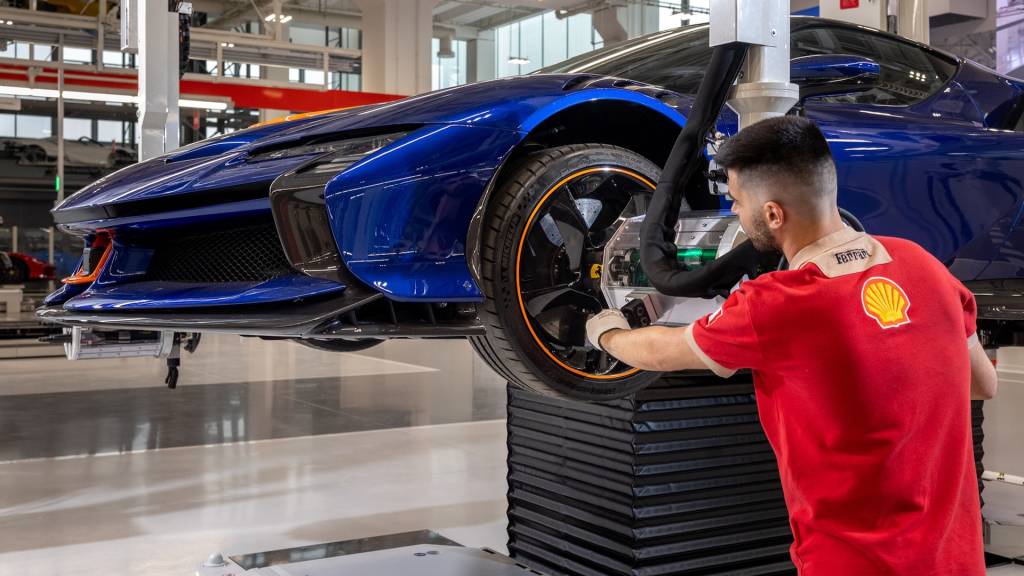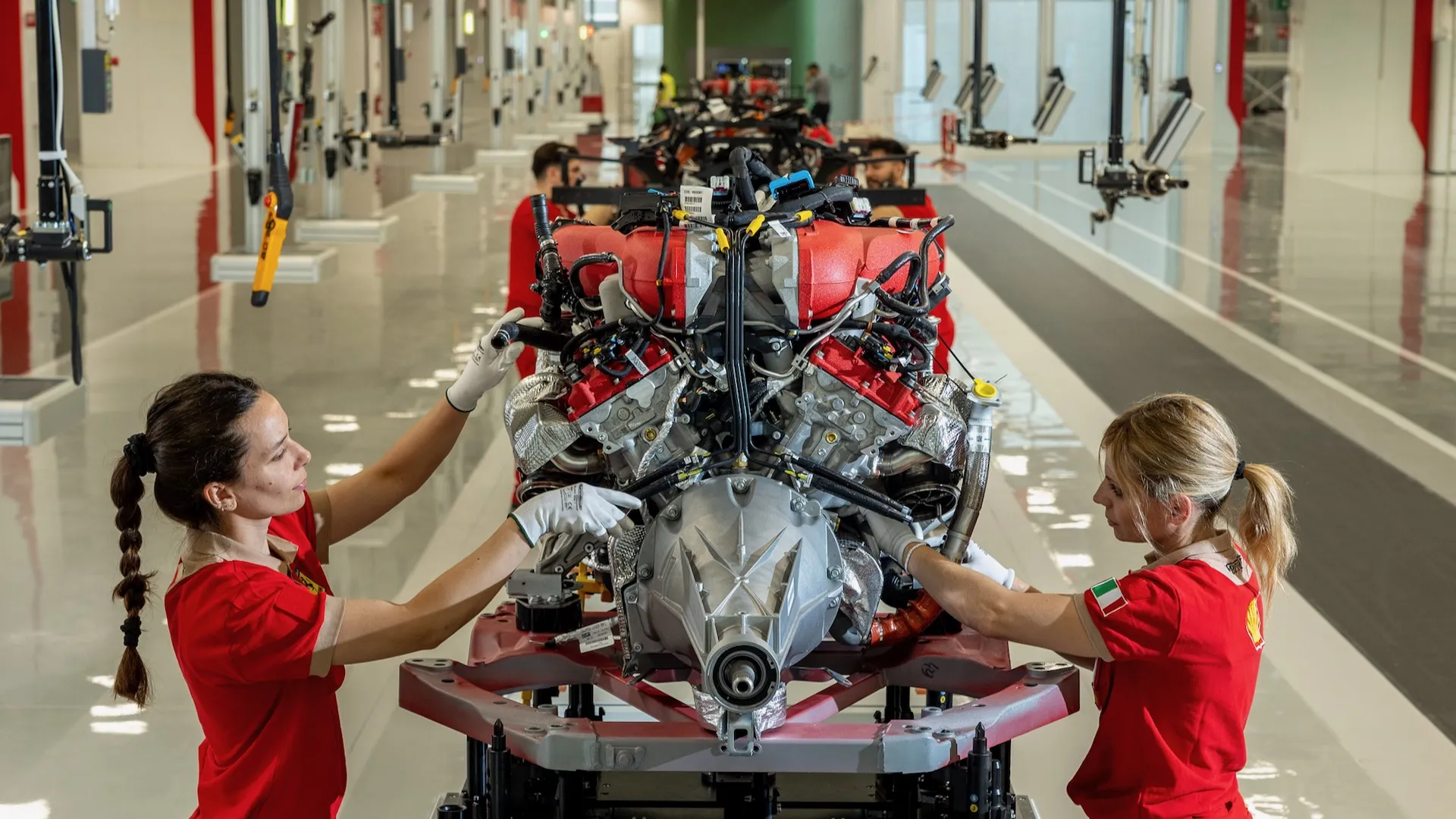Italian officials want the European Union to review a plan to end sales of new internal-combustion cars by 2035 earlier than scheduled.
“The ban must be changed,” Italian energy minister Gilberto Pichetto Fratin told Automotive News Europe last week on the sidelines of the TEHA business forum in Cernobbio, on the shores of Italy’s Lake Como, calling it “absurd” and dictated by an “ideological vision” and saying changes were required to address different market realities created by a slowdown of the European auto industry.
Ferrari e-building
Adolfo Urso, Italy’s industry minister, said a planned intermediate assessment of progress toward meeting the stricter emissions rules that underpin the internal-combustion ban should be moved forward from 2026 to next year, declaring that the EU needs a “pragmatic vision” for the future of the auto industry.
The current right-wing Italian government of Giorgia Meloni wants EU member states to have more freedom in the technologies used to meet emissions-reduction goals, as well as a more gradual shift away from combustion engines, Automotive News Europe notes. Some markets in Northern Europe and Scandinavia don’t need more time for the transition, though, as they’re already at very high rates of plug-in vehicles.

Ferrari e-building
The 2035 end date for internal combustion was first proposed in 2021, with steep cuts in emissions on the way toward that goal. But that policy was softened in 2023 after Germany successfully lobbied for a loophole for vehicles burning e-fuels. These synthetic fuels are billed as having lower overall carbon emissions than gasoline or diesel, and are viewed by some automakers—including Italy’s Ferrari—as a savior for internal-combustion cars.
The U.S. has no national plan for phasing out combustion engines. Current emissions rules could lead to 67% EV sales by 2032, regulators estimate, but they could also be overturned if the Republican Party seizes power in the upcoming election. California has enacted its own strict 2035 emissions rules that would end sales of most combustion-engine vehicles, with an exception for 50-mile plug-in hybrids.
Read the full article here




